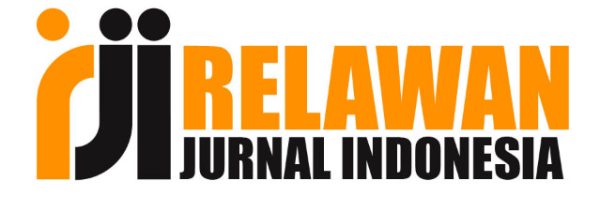The Maqasid Methodolgy
A Guide for the Researcher in the Research Network
DOI:
https://doi.org/10.52100/jcms.v1i1.59Keywords:
maqasid methodology, maqasid research network, complex framework, ijtihadAbstract
The current study aims at presenting the steps of the maqasid methodology in its general framework applied by researchers in the Maqasid Institute and other interested individuals who are assembled in research groups and networks that seek answers to contemporary practical and scientific queries through the Islamic approach of the maqasid methodology illustrated in the book entitled Re-envisioning Islamic Scholarship: Maqasid Methodology as a New Approach. The purpose of this methodology is to generate theories and principles that guide ijtihad (independent reasoning) in disciplinary and phenomena studies upon which the judgement of interests and harms is base, as well as determining the legal rulings according to the nature of the research. In this regard, we introduce the general frameworks and interconnectivities of the complex worldview of the maqasid methodology and its elements namely, objectives, concepts, groups, universal laws, values, proofs, and commands derived from the Holy Qur’an and the Sunnah of Prophet Muhammad (PBUH) to govern the maqasidi-based envisioning and action.References
Abduh, Mohammad. (1993). Al-A’mal Al-Kamilah lil-Sheikh Muhammad ‘Abduh. ed. Mohammad Emara, Cairo: Dar al-Shuruq.
Abdul-Fattah, Seif. (2020). Musa’alat Al-Turath: Al-Mafhum, Al-Minhajiyah. Al-Ma’alat, Egyptian Institute for Studies, Political Studies.
Abu Ghudda, Abdul-Fattah. (1984). Commentary: Zafar Al-Tahanawi, Qawa’id fi ‘Ulum Al-Hadith. Halab: Maktab Al-Matbu’at Al-Islamiyah.
Abu Zaid, Nasr Hamed. (1990). Mafhoom Al-Nass: Dirasah fi Ulum Al-Quran, Cairo: Al-Hayah Al-Misriyah lil-Kitab.
Ahmad, A. A., Yaacob, S. E., & Zain, M. N. (2014). The Use of Wa’dan in Islamic Contract FX Forward: Weighting between Maslahah and Mafsadah. Asian Social Science.
Al-Amidi, Ali. (1404 AH). Al-Ihkam fi Usul Al-Ahkam. Beirut: Dar Al-Kitab Al-Arabi.
Al-Awni, Al-Sharif Hatem. (1997). Al-Mursal Al-Khafi wa ‘alaqatuhu bit-tadlis - Dirasah Nazariyah wa Tatbiqiyah ‘la Marwiyat Al-Hasan Al-Basri. Al-Khubar: Dar Al-Hijrah.
Al-Azami, Mohammad. (1985). On Schacht’s Origins of Mohammadan Jurisprudence. Riyadh: King Saud University and John Wiley.
Al-Bouti, M. Said Ramadan. (2001). Dawabit Al-Maslahah Fil Shariah Al-Islamiyah, 6th ed. Damascus: Al-Risala Foundation.
Al-Farabi. (1949). Ihsa al-'ulum. ed. U. Amin, Cairo: Dar al-Fikr al-Arabi.
Al-Faruqi, Ismail. (1952). On Justifying the Good. Ph.D. Thesis in Philosophy, Indiana University.
Al-Ghazali, Abu Hamid. (1992). Al-Mustasfa fi ‘Ilm Al-Usul. 1st ed. Beirut: Dar al-Kutub al-‘Ilmiya.
Al-Ghazaly, Mohammad. (2002). Nazarat Fi Al-Quran. Cairo: Nahdat Misr.
Al-Juwaini, Abdul-Malik. (1997). Al-Burhan fi 'Ulum Al-Qur’an. 4th ed. Al-Mansura. Egypt: Dar Al-Wafaa.
Al-Raysuni, Ahmad. (1992). Nazariat Al-Maqasid ‘inda Al-Imam Al-Shatibi. Beirut: International Institute of Islamic Thought.
Al-Saffar, Hassan. (2018). ‘Aqliyat al-tahrim wal-tanfir min al-din (The mentality of prohibition that made people reject religion), www.saffar.org/?act=artc&id=4072.
Al-Tahanawi, Zafar. (1984). Qawa’id fi ‘Ulum Al-Hadith, Halab: Maktab Al-Matbu’at Al-Islamiyah.
Auda, Jasser. (2018). Naqd Nazariyyat Al-Naskh (A Critique of the Abrogation Theory). Beirut: Al-Shabakah Al-Arabiyyah, 2014 (translated to English and published by the Islamic Foundation, UK, Kube Publishing.
Auda, Jasser. (2021). Re-envisioning Islamic Scholarship: Maqasid Methodology as a new Approach. Wales: Claritas.
Auda, Jasser. (2008) Maqasid al-Shariah as Philosophy of Islamic Law: A Systems Approach. London: International Institute of Islamic Thought.
Auda, Jasser. (2010). “Aisha’s Critique of Authentic Hadith Content via Quranic Universals, Proceedings: IIIT Scholars Summer Seminar, Virginia, (also available on jasserauda.net, scribd.com, etc.).
Bakar, Osman. (1998). Classification Of Knowledge In Islam A Study In Islamic Philosophies Of Science. Cambridge: Islamic Texts Society.
Barnes, J. (1976). Introduction to Aristotle: The Nicomachean ethics ('Ethics'). Harmondsworth: Penguin .
El-Messiri, Abdel-Wahab. (2006). Epistemological Bias in the Social and Physical Sciences. London - Washington: IIIT.
Ibn Hazm. (n.d) Maratib al-ulum. manuscript. N. p.
Ibn Khaldun. (2015). The Muqaddimah: An Introduction. trans. Franz Rosenthal، Princeton Classics.
Ibn Sina. (n.d) Risalah fi aqsam al-ulum al-’aqliyah. (manuscript) Cairo: Dar al-Nashr.
Ibn Taymiyah, Ahmad. (n.d). Al-Musawada. Ed. M. Mohieldin Abdulhameed. Cairo: Al-Madani.
Kamali, Mohammad Hashim. (2012). Maqasid Al-Shariah, Ijtihad and Civilisational Renewal. International Institute of Islamic Thought & International Institute of Advanced Islamic Studies.
Qutb, Sayyid. In the Shade of the Quran (Fi Dhilal Al-Quran) Tafsirzilal.
wordpress.com/2012/06/05/english-language
Rida, Mohammad Rasheed. (2005). Tafsir Al-Manar. Cairo: Mathba’ah al-Manar.
Rida, Mohammad Rasheed. (w.d). Al-Wahi Al-Mohammadi - Thubut Al-Nubuwwah bil-Qur’an. Cairo: Mu’asasat Izziddin.
Schacht, Joseph. (1950). Foreign elements in ancient Islamic law. J. Comp. Legis. & Int'l L. 3d ser., 32, 9.
Subhani, Mohammad Asad. (2000). Im’an Al-Nazar fi Nizam Al-Ayat wal-Suwar. Azamgarh: Nizamul-Quran lil-Nashr.
Downloads
Published
How to Cite
Issue
Section
License
Copyright (c) 2021 Journal of Contemporary Maqasid Studies

This work is licensed under a Creative Commons Attribution-NonCommercial 4.0 International License.






